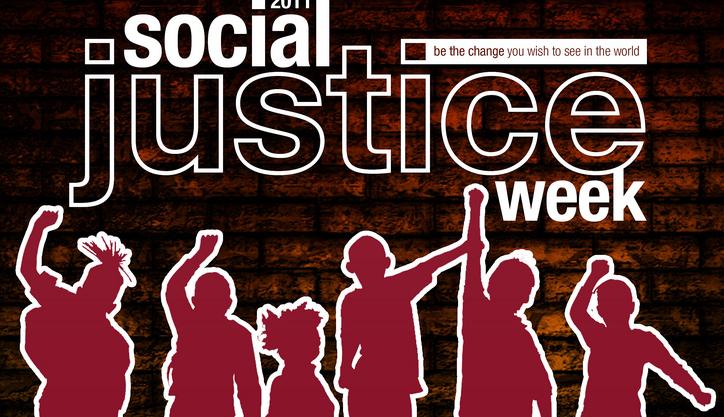
The social justice bench of the Supreme Court comprising justices Madan B Lokur and UU Lalit heard six cases on Friday, 11 September, and made significant interventions in at least two.
Sampurna Behrua vs Union of India
In Sampurna Behrua vs Union of India, the bench directed the closure of unregistered children’s homes, because it felt they might be used for trafficking of children.
The bench spent nearly an hour on this first case from 2 pm grilling the additional solicitor general (ASG), PS Patwaliya about the steps being taken by the government on the ground, as opposed to mere bureaucratic initiatives, like filing affidavits and meetings of officials.
“Trafficking is a serious offence in law, and against humanity,” Justice Lokur observed, hoping to inject a sense of seriousness on the part of the Government. Not a single unregistered NGO must have a single child, Justice Lokur said.
When the ASG said the Government could only write letters to the state governments, Justice Lokur said the Centre could do much more, like stopping funds to such NGOs, and taking children out of them.
When the ASG said we could not paint everyone with the same brush, and that the onus is on the states to close such NGOs, the bench expressed its shock over the data reported from Assam, where there was a big inflow and outflow of small girls from children homes compared to boys from such homes.
The bench expressed its surprise that the Government had no answers to the question why the number of girls leaving these homes is much more than that of the boys leaving them. A report on the proceedings can be read here.
National Campaign Committee for central legislation on construction labour vs UOI
In the second case the National Campaign Committee for central legislation on construction labour vs UOI, the bench expressed its dismay that the Central Advisory Committee of the Labour Ministry did not meet for nearly a year, although it is supposed to meet once in six months.
As the bench, during the last hearing, urged the Secretary for the ministry of labour and employment, Shankar Aggarwal to be present on September 11, he was present and answered the questions from the bench.
When the Secretary said after the new Government assumed office, the Government has begun to look at the proper implementation of The Building and Other Construction Workers’ Welfare Cess Act, 1996 and the the Building and Other Construction Workers (Regulation of Employment and Conditions of Service) Act, 1996, Justice Lalit said, the acts do not distinguish between the new and the old governments.
When the ASG, Maninder Singh, said when the states default, the Centre has been helpless, Justice Lokur referred to Section 60 of the 1996 Act dealing with employment and conditions of service, which enables the Centre to give directions to the States with reference to execution of any of the provisions of the Act.
The Secretary then promised to file an affidavit before the next hearing about the steps being taken to ensure that the amount of Rs 27,000 crores collected under the Act reached the intended beneficiaries.
Bachpan Bachao Andolan vs UOI
In the third case, Bachpan Bachao Andolan vs UOI, the bench took the Uttar Pradesh counsel, Gaurav Bhatia, to task for the state’s affidavit in the matter, which said that the juvenile justice committee of the High Court of Allahabad is doing the work of the Government, and therefore, no action is required from the Government.
How could the state Government expect a judicial committee to do its work, Justice Lokur asked Bhatia to explain.
Profusely apologising for the flawed affidavit, Bhatia promised to make it good before the next hearing. The petitioner in this case has sought the court’s directions to put in place standard operating procedures including registration of FIRs about the missing children and tracing them. When the question of filling up of the vacancies at National Commission for Protection of Child Rights (NCPCR) came up, the ASG, Maninder Singh said the matter was with the Prime Minister’s Office, and the decision would be taken soon.
The bench, however, said, it is not concerned whether the PMO or some other office is dealing with it, but it wants expeditious results to its earlier direction to fill the posts at the earliest. The posts have been lying vacant since October 2014.
A look at its website shows all the posts are vacant.
Social Action Forum WP
In the fourth case, the petitioner, Social Action Forum (WP (civil) 73/2015), sought uniform guidelines for registration of FIRs in matrimonial cases, on the lines of judgment given in Lalit Kumari vs Government of UP .
The bench issued notices to the respondents, and decided to hear the case further.
The rest
The bench heard two more cases in quick succession, and asked the Union of India’s counsel to expedite its responses to the petitions.
These are Gaurav Kumar Bansal vs Union of India, dealing with disaster preparedness, and SL Foundation Through Its President vs UOI, which seeks the court’s directions to stop the practice of Devadasis - dedication of girls into prostitution in the name of religion- in parts of southern India, especially, Karnataka and Andhra Pradesh, whereby parents marry a daughter to a deity of a temple, before she reaches puberty, and require her to become a prostitute for upper-caste community members.
The petitioner claims that the practice persists despite its formal abolition through law, and seeks rehabilitation of victims, who were pushed into this.
While the first two cases took an hour each, the bench managed to deal with the remaining before 4.30 pm.
threads most popular
thread most upvoted
comment newest
first oldest
first
threads most popular
thread most upvoted
comment newest
first oldest
first